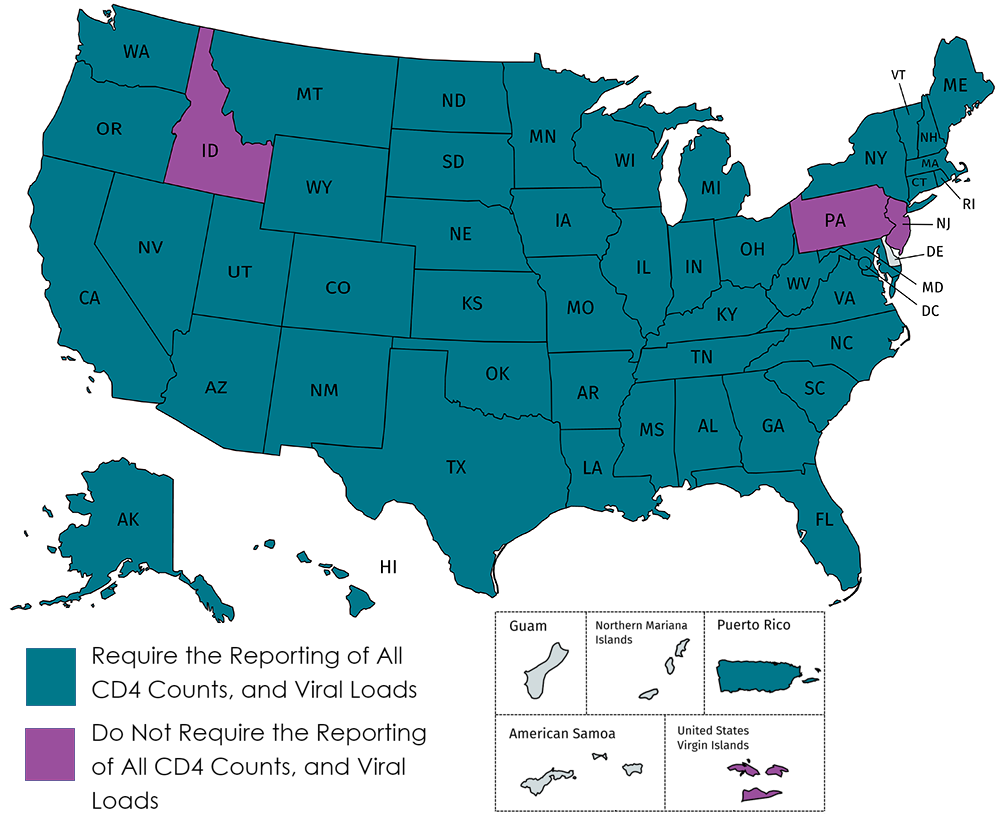State Laboratory Reporting Laws: Viral Load and CD4 Requirements
Data on viral load and CD4 counts for people with HIV can provide information about the effectiveness of prevention and treatment programs.
Viral load measurements indicate the number of copies of the HIV-1 virus that are in a milliliter of a person’s blood. CD4 results provide a measure of a person’s immune function and give information about a person’s white blood cells. Among people with HIV, CD4 results are often used to monitor disease progression, determine the stage of HIV infection, and make decisions about when particular treatments are appropriate. In addition, both viral load and CD4 data are used to assess whether patients are responding to treatment: when treatment is successful, CD4 counts rise and viral loads fall. Current HIV clinical management guidelines call for CD4 and viral load testing at the time of diagnosis and regularly thereafter.
When all CD4 and viral load results are reported, public health agencies can better allocate resources for HIV prevention and care, monitor trends, address clusters, and ensure that people with HIV are and remain in care. While all states in the United States (U.S.) have enacted statutes or regulations (laws) requiring laboratory reporting, not all laws require the reporting of all CD4 and viral load results. As of 2020, 47 states, the District of Columbia, and Puerto Rico meet the criteria for requiring that all CD4 and viral load data be reported. Three states and one U.S. territory do not meet the criteria: Idaho, New Jersey, Pennsylvania, and the Virgin Islands.

The information presented here does not constitute legal advice and does not represent the legal views of the Centers for Disease Control and Prevention or the Department of Health and Human Services, nor is it a comprehensive analysis of all legal provisions relevant to HIV. This information is subject to change and does not contain measures implemented by counties, cities, or other localities. Use of any provision herein should be contemplated only in conjunction with advice from legal counsel.